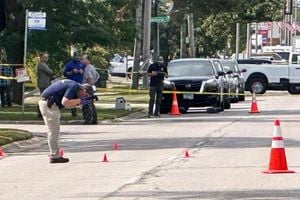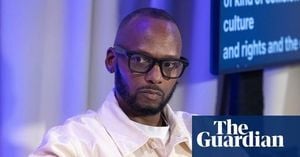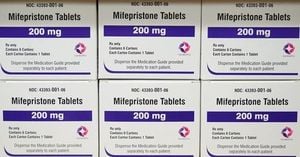The 2019 measles outbreak in Samoa tragically exemplifies the far-reaching consequences of vaccine hesitancy and misinformation. After suffering through the loss of numerous children due to this preventable disease, families and health officials on the island nation are clear: vaccines save lives. One significant factor contributing to the dire situation was the involvement of Robert F. Kennedy Jr., whose public health messaging often leans against vaccinations.
RFK Jr., known for his vocal opposition to vaccines, visited Samoa shortly before the outbreak, where he met with various anti-vaccine figures. This engagement played a pivotal role, according to health experts, contributing to what they describe as a "significant disinformation campaign" against vaccinations. The repercussions were tragically manifested when, during the outbreak, over 4,000 cases of measles were reported, leading to at least 83 deaths, mostly among young children.
Prior to the outbreak, vaccination rates had plummeted following several incidents, including the tragic deaths of two infants due to erroneous vaccine administration. The mismanagement led to the suspension of vaccination programs for ten months, which permitted fear and misinformation to proliferate, causing suspicion among the population about vaccine safety.
Fa’aoso Tuivale, whose three children succumbed to the disease during the outbreak, expressed heart-wrenching sentiments about her loss. "I did everything I could," she said as she visited the graves of her children. Her account is emblematic of the suffering faced by many families who lost loved ones due to the outbreak.
Global health authorities have voiced deep concerns over RFK Jr.'s influence, particularly as he has been nominated to lead significant health departments under the incoming Trump administration. Samoan officials, still reeling from the effects of the measles outbreak, warn this nomination could present serious ramifications for public health, exacerbated by his anti-vaccine stances.
By creating doubt around vaccines, Kennedy's rhetoric fosters resistance to immunization, increasing the risk of outbreaks like the one Samoa faced. Vaccines are scientifically proven to prevent infectious diseases; their importance was highlighted during the measles outbreak when only about 31% of children were vaccinated prior to the epidemic.
Experts assert the impact of misinformation is particularly troubling for communities with historically low vaccination rates, where public health interventions need to urgently counteract myths surrounding vaccine safety and efficacy. Measles, for example, is one of the most infectious diseases known, and without widespread immunization, it can swiftly return and wreak havoc.
The importance of timely and accurate messaging cannot be overstated. Health professionals argue for prioritization of vaccinations as public health imperatives, spotlighting the need for reliable information to combat anti-vaccine narratives. This aligns with findings from the Autism Science Foundation, emphasizing, "There is no correlation between autism and vaccines." Such studies serve as both reassurance and guidance amid tumultuous public opinions.
The recent reignition of discussions surrounding vaccine safety and efficacy due to the pandemic highlights vaccination as not only an individual choice but also a community responsibility. Countries like Samoa bear the scars of mismanaged health messaging, emphasizing the need to bolster confidence through scientific endorsements and transparent communication.
With RFK Jr.'s predilection for anti-vaccine rhetoric, many worry his ascent to significant public health leadership may hinder progress takes significant trust-building initiatives across communities impacted by the lies and fears embedded within anti-vaccine ideologies. The experience of Samoan families stresses this urgency interwoven throughout narrative echoes the sentiment among health advocates: Vaccine misinformation can be deadly. The need for informed public health policy cannot be ignored as nations seek to navigate through the fractures created by misinformation campaigns.
Families across the globe observe events with caution, especially those hurt by errors and tragedies related to vaccine-preventable illnesses. The time to align health policies with science has never been more urgent and needed.
Reflecting on the painful lessons learned from the Samoa measles outbreak, the world is reminded of the collective responsibility to protect vulnerable populations through widespread vaccination efforts, knowledge sharing, and communal support for factual health resources to overcome the ominous specter of vaccine misinformation.
Global leaders and health organizations must focus on correcting the damaging discourse. Whether through targeted outreach, community engagement, or enhanced accessibility to reliable health information, it’s time to rededicate resources toward reversing trends of vaccine hesitancy and securing the health of all generations to come.



